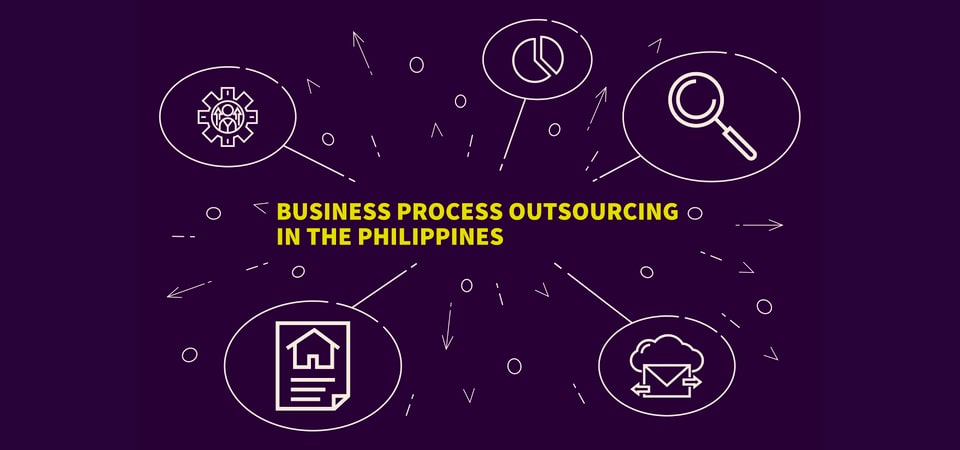In the past decade, the Philippines has come to the forefront and shown phenomenal growth in the outsourcing industry. It has always had a good reputation within the BPO industry, and now more and more companies recognise it as one of the top outsourcing destinations in the world, owing to the combination of its highly qualified and cost-competitive workforce and strong government support for investment in outsourcing.
Growth Over the Past Decade
Back in 2011, the outsourcing industry employed more than 630,000 Filipinos and generated over $11 billion. The Philippine IT-BPO Road Map 2011-2016 included projections that the industry would grow to employ 1.3 million workers and generate $25 billion in annual revenue by 2016.
While growth wasn’t quite as aggressive as those projections suggested, it was healthy nonetheless, with the employed headcount reaching 1 million, and revenue hitting $22.9 billion in 2016.
Fast forward to today, and the numbers tell an even more impressive story. The Philippine BPO workforce has expanded to 1.82 million full-time employees by end-2024, up from 1.57 million in 2023. That’s an 8.3% annual growth rate that added 130,000 new jobs in a single year.
Revenue has grown even more dramatically. The industry hit $35.5 billion in 2023 and reached $38 billion by 2024, achieving 7% year-over-year growth. The sector now contributes 7.5% to Philippine GDP and accounts for 10-15% of the global outsourcing market.
Current State of The Industry
The Philippines has solidified its position as the world’s second-largest outsourcing destination by volume, and according to IBPAP projections, the industry expects more modest growth of 5-6% for 2025, with long-term targets of $59 billion by 2028.
Today, 54% of new job creation occurs in countryside locations outside Metro Manila. About 27% of the total workforce – approximately 424,000 employees – now work in provincial areas. Major companies have invested heavily in provincial operations.
Concentrix operates 98,729 square meters of office space outside Manila, while Teleperformance maintains 51,400 square meters across Cavite, Baguio, Cebu, Bacolod, Cagayan de Oro, and Davao City, which is where Virtual Done Well headquarters are situated.
Government Support Takes a Major Leap Forward
The CREATE MORE Act (Republic Act 12066), signed November 11, 2024, fundamentally changes the investment landscape. The legislation reduces corporate income tax from 25% to 20% for Registered Business Enterprises and enables up to 50% of workforce to operate remotely while retaining tax benefits.
This is huge for BPO companies. BOI-registered firms can maintain 100% work-from-home arrangements, addressing a major regulatory friction point that emerged during the pandemic.
Additional government support includes:
- PHP 201.55 billion in PEZA investment approvals for 2024 (43% increase from 2023)
- $287 million World Bank funding for nationwide broadband connectivity expansion
- PHP 38.75 billion ICT/digitalization budget for 2024 (60.6% increase from 2023)
The Shift from Voice to Knowledge Work
The industry is undergoing rapid transformation. Traditional voice services, which historically represented 80% of operations, now account for about 70%, with non-voice services making up the remaining 30%.
Knowledge Process Outsourcing (KPO) is growing at 30% annually versus BPO’s 24%. The Philippines now ranks #1 globally for high-end KPO jobs in finance and accounting.
New service offerings emerging include:
- AI training and data annotation
- Cybersecurity services
- Cloud migration support
- Digital transformation consulting
What’s remarkable is that 86% of Filipino white-collar workers use AI tools – the highest rate globally. About 67% of IBPAP member companies are implementing or piloting AI systems.
Geographic Expansion Beyond Manila
The Department of Science and Technology has officially designated 10 Next Wave Cities including Baguio, Dumaguete, and Naga, based on talent availability, infrastructure capabilities, and cost competitiveness.
Major hubs have emerged in:
- Clark Freeport Zone (third-largest BPO population)
- Davao City (fourth)
- Bacolod City (fifth)
The Rural Impact Sourcing Technical Assistance program has trained hundreds of workers across 69 locations. About 70% of graduates secure online jobs, with 400 graduates generating PHP 15 million in revenue in 2018 alone.
Infrastructure development accelerates through the World Bank’s EUR 268.22 million Philippines Digital Infrastructure Project, targeting 20 million beneficiaries with climate-resilient broadband connectivity.
The AI Challenge and Opportunity
Here’s the reality: 89% of the BPO workforce faces high automation risk according to ILO data. BMI/Fitch Solutions warns the sector may shrink as AI adoption accelerates.
But the industry is responding. 95% of organizations prioritize generative AI adoption within 6-12 months according to NASSCOM data. Companies like Concentrix deploy AI monitoring for 100% of calls with real-time performance scoring.
IBPAP President Jack Madrid, who took the helm in October 2021, emphasizes generative AI’s “critical role” in creating 1.1 million new jobs by 2028. The association launched partnerships with Google for workforce upskilling at the 16th International IT-BPM Summit 2024.
Competition from Other Markets
The Philippines faces intensifying competition. Vietnam’s BPO market reaches $2.5 billion in 2024 with projections of $3.6 billion by 2028. They’re offering labor costs 30-50% lower than the Philippines while graduating 50,000+ IT professionals annually.
India maintains dominance with 36% of the global $186 billion BPO market and 4+ million employees. Indian call center agents average $2,868 annually versus Philippines’ $5,301-$9,883 range.
But the Philippines maintains key advantages:
- 22nd global ranking in English proficiency compared to India’s 52nd
- 92.5% English proficiency rate with superior accent neutrality
- Cultural compatibility with Western markets
- Optimal time zones for 24/7 US and Australia operations
Current Salary Structures and Cost Benefits
Here’s what companies actually pay in 2024:
- Entry-level positions: PHP 15,407-20,000 monthly ($275-$358)
- Experienced workers: PHP 30,000-45,284 ($537-$811)
- Senior management: PHP 70,000+ ($1,253+)
Specific roles average:
- Customer service agents: PHP 38,500 monthly ($689)
- Team leaders: PHP 46,200 ($827)
- Training managers: PHP 66,000 ($1,180)
The Philippines’ average monthly salary of $373.83 provides approximately 40% cost advantage versus India’s $621.74, Malaysia’s $853.47, and China’s $923.21.
Security Concerns Need Addressing
One area that needs serious attention: 84.5% of Philippine organizations experienced an average of 3.13 cybersecurity breaches in 2024 according to BlueVoyant research. About 32% lack capabilities to detect supply chain cyber incidents.
This creates compliance challenges with Data Privacy Act 2012, GDPR, and the National Cybersecurity Plan 2023-2028. Companies considering outsourcing to the Philippines need robust security protocols and vendor assessment processes.
Education and Talent Development
The talent pipeline remains strong. The Philippines produces 350,000 college graduates yearly including 350,000 STEM graduates, with approximately 400,000 IT professionals in the current workforce.
TESDA offers 318 courses including BPO-specific programs achieving 70% graduate employment rates and 90% employer satisfaction. The TESDA-Bacolod-Ubiquity partnership’s “Training Program for Near Hires” provides 10-day intensive programs targeting specific industry needs.
Learn How Your Business Can Benefit from Outsourced Talent
The Philippine BPO industry stands at a critical inflection point. It’s achieved remarkable growth to $38 billion revenue and 1.82 million employees, but faces real challenges from AI disruption and competition.
For businesses considering outsourcing, the Philippines still offers compelling advantages:
- Significant cost savings (40-60% versus Western markets)
- Strong English proficiency and cultural alignment
- Mature BPO ecosystem with established global relationships
- Government support through the CREATE MORE Act
- Growing talent pool with targeted training programs
The key is choosing the right partner and services. Focus on processes that benefit from human judgment, cultural understanding, and complex problem-solving – areas where Filipino workers excel and AI still struggles.
If you’d like to learn more about outsourcing to the Philippines and see how even small businesses can benefit from the highly skilled, low-cost pool of talent available for outsourced process management and execution, you’ll find plenty of resources on our YouTube channel. We’re adding new videos every week, each filled with productivity and cost-saving tips, along with guidance for growing your business with help from outsourced talent in the Philippines.



Recent Comments